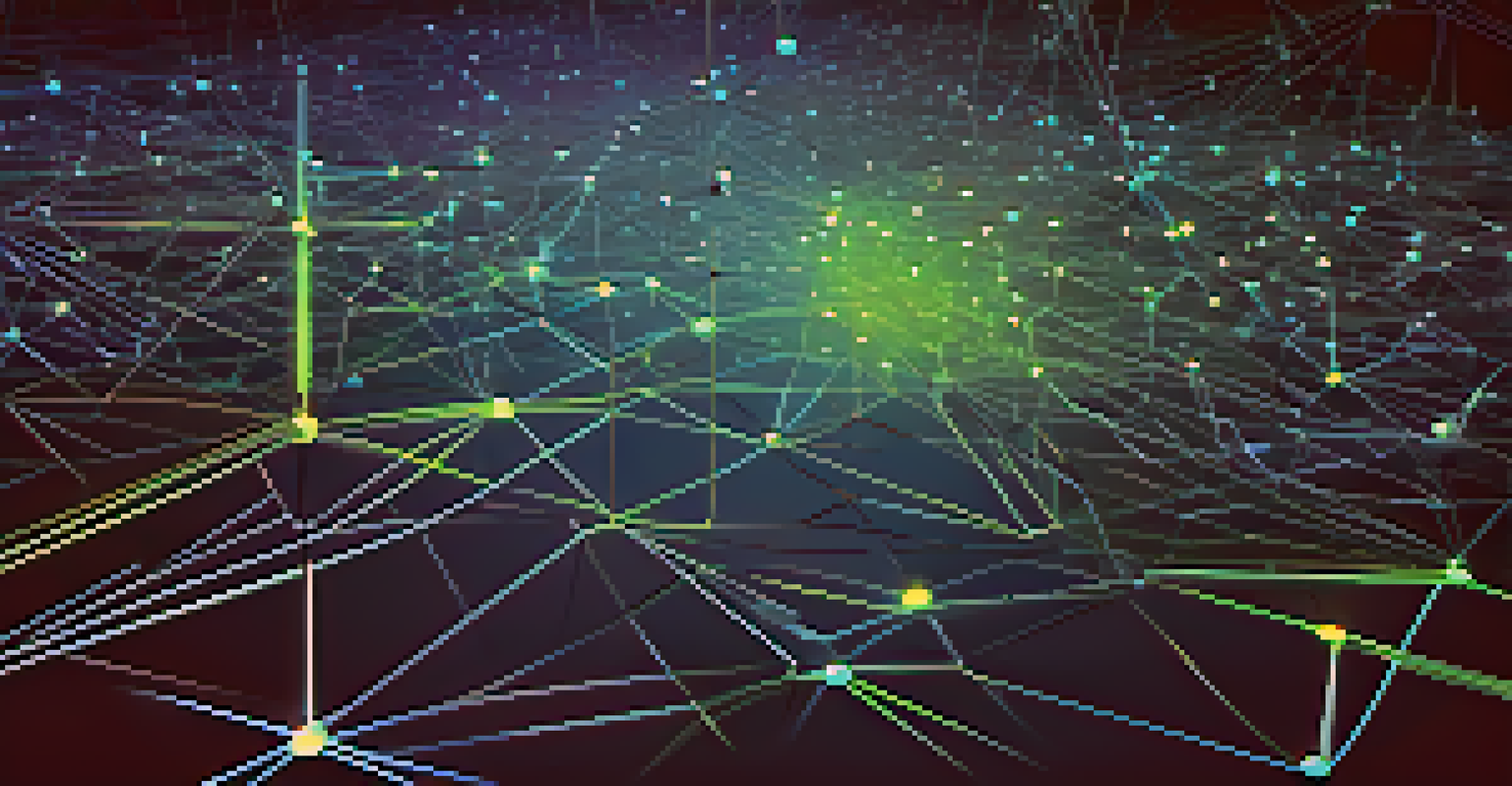The Role of Oracles in Bitcoin Smart Contracts

What Are Oracles and Why Are They Important?
At its core, an oracle is a bridge between the blockchain and the outside world. They provide essential data that smart contracts need in order to execute correctly. Without oracles, smart contracts would be limited to the information contained within the blockchain, which can hinder their functionality.
Oracles are essential for smart contracts to interact with the real world; they provide the data needed for execution.
Imagine a smart contract designed to automatically pay out a sum based on weather conditions. The contract itself can't access real-time weather data, which is where an oracle steps in. By feeding the required information from external sources into the blockchain, oracles enable these contracts to function effectively.
Therefore, oracles play a pivotal role in expanding the capabilities of smart contracts, allowing them to respond to real-world events and conditions. This broadens the potential applications of blockchain technology significantly.
Types of Oracles: A Closer Look
There are several types of oracles, each serving a different purpose. The main types include software oracles, hardware oracles, and centralized oracles. Software oracles pull data from web-based sources, while hardware oracles gather data from the physical world using sensors.

For instance, a software oracle might provide stock prices for a trading smart contract, while a hardware oracle could supply temperature readings for a contract related to agriculture. Each type has its strengths, depending on the nature of the data required.
Oracles Bridge Blockchain and Reality
Oracles provide essential external data for smart contracts, enabling them to execute based on real-world events.
Understanding these types helps in selecting the right oracle for a specific smart contract, ensuring that the data needed for execution is accurate and reliable. This selection process is crucial for the success of the contract.
How Oracles Enhance Bitcoin Smart Contracts
While Bitcoin is primarily known for its transaction capabilities, its potential for smart contracts can be realized through the use of oracles. By integrating oracles, Bitcoin smart contracts can become more versatile and responsive to external conditions. This integration allows contracts to execute based on real-world events, such as market changes or weather conditions.
Decentralized oracles are the future of data feeds, providing a tamper-proof solution to the challenges faced by traditional oracles.
For example, a Bitcoin smart contract for a bet on a football match can utilize an oracle to confirm the outcome of the game. The contract can then automatically distribute winnings based on the verified data from the oracle, eliminating the need for manual intervention.
Thus, oracles not only enhance the functionality of Bitcoin smart contracts but also improve their reliability, making them a practical choice for various applications.
Challenges Facing Oracles in Bitcoin
Despite their benefits, oracles also come with challenges that need addressing. One major concern is the reliability of the data they provide. If an oracle delivers incorrect information, it can lead to unintended consequences for the smart contract, such as incorrect payouts or contract failures.
Additionally, the centralization of some oracles poses a risk, as relying on a single source for data can create points of failure. This is particularly concerning in the decentralized world of blockchain, where trust and security are paramount.
Decentralized Oracles Enhance Reliability
Decentralized oracles leverage multiple data sources to ensure more accurate and secure information for smart contracts.
Addressing these challenges is crucial for the continued evolution of oracles in Bitcoin smart contracts. Solutions such as decentralized oracles are being developed to mitigate these risks and enhance data reliability.
Decentralized Oracles: The Future of Data Feeds
Decentralized oracles are an emerging solution to the challenges posed by traditional oracles. By leveraging multiple data sources and consensus mechanisms, decentralized oracles aim to provide more reliable and tamper-proof data feeds. This approach minimizes the risk of a single point of failure and enhances the security of smart contracts.
For example, projects like Chainlink are pioneering decentralized oracle networks that aggregate data from various sources. This ensures that the information fed into smart contracts is accurate and trustworthy, which is essential for their successful execution.
As the demand for reliable data increases, decentralized oracles could become the standard for Bitcoin smart contracts, paving the way for more complex and secure applications.
Real-World Applications of Oracles in Bitcoin
The integration of oracles with Bitcoin smart contracts is already showing promising real-world applications. From insurance contracts that pay out based on flight delays to decentralized finance (DeFi) applications that adjust interest rates based on market conditions, the possibilities are vast. Oracles can facilitate automated, trustless transactions that previously required manual oversight.
For instance, a smart contract could automatically issue a refund if a delivery is late, using an oracle to verify the shipment status. This automation not only improves efficiency but also enhances user experience by reducing the need for intermediaries.
Real-World Use Cases of Oracles
Oracles facilitate automated transactions in various industries, such as insurance and decentralized finance, enhancing efficiency and user experience.
As more developers explore innovative use cases, the role of oracles in Bitcoin smart contracts will likely expand, leading to more sophisticated applications across various industries.
The Future of Oracles in Bitcoin Smart Contracts
Looking ahead, the role of oracles in Bitcoin smart contracts will continue to evolve. As technology advances, we can expect to see improvements in data accuracy, security, and decentralization. This evolution will further empower developers to create smart contracts that are responsive to the real world.
Moreover, as businesses and industries begin to embrace blockchain technology, the demand for reliable oracles will increase. This demand will drive innovation, leading to new solutions and approaches that enhance the functionality of smart contracts.

In conclusion, the future of Bitcoin smart contracts is bright, thanks in large part to the ongoing development of oracles. The potential for real-world applications is immense, making this an exciting area to watch.